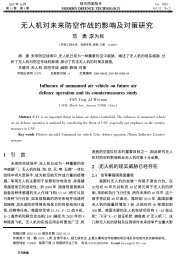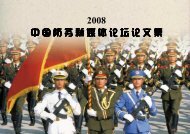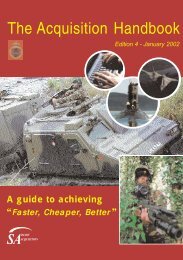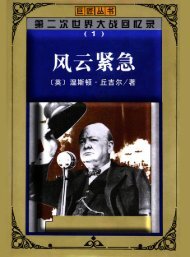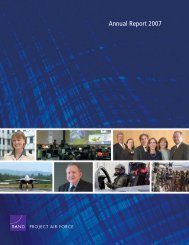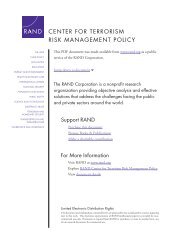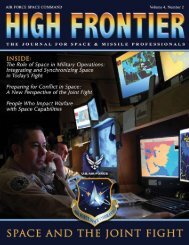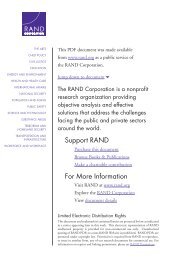How Terrorist Groups End - RAND Corporation
How Terrorist Groups End - RAND Corporation
How Terrorist Groups End - RAND Corporation
You also want an ePaper? Increase the reach of your titles
YUMPU automatically turns print PDFs into web optimized ePapers that Google loves.
<strong>End</strong>ing the “War” on Terrorism 123<br />
into combat operations in Muslim countries, where its presence is likely<br />
to increase terrorist recruitment.<br />
Changing the Symbols<br />
The backbone of this two-front strategy should include focusing on<br />
careful police and intelligence work at home and abroad. This would<br />
include ending the notion of a “war” on terrorism and replacing it with<br />
such concepts as counterterrorism, which most governments with a significant<br />
terrorism problem use. This change might seem pedantic but<br />
would have significant symbolic importance. Moving away from military<br />
references would indicate that there was no battlefield solution<br />
to countering terrorism. Indeed, former secretary of defense Donald<br />
Rumsfeld had serious reservations about using the term war on terror<br />
because he was “concerned that the word ‘war’ led people to overemphasize<br />
the importance of the military instrument in this multidimensional<br />
conflict.” 4 Individuals, such as Ayman al-Zawahiri and Osama<br />
bin Laden, should be viewed and described as criminals, not as holy<br />
warriors. “The notion of a war on terrorism,” one British intelligence<br />
official told us, “suggests to Muslims abroad that the United States is<br />
fighting a war on Muslims. And the response has to be jihad, or holy<br />
war. War convinces people to do jihad.” 5<br />
In Britain, for example, the government shunned the phrase war<br />
on terror despite a long history of dealing with such terrorist groups as<br />
the IRA. Hilary Benn, Britain’s international-development secretary,<br />
argued that the phrase suggests that only military measures could be a<br />
useful response. “In the UK,” he noted, “we do not use the phrase ‘war<br />
on terror’ because we can’t win by military means alone and because<br />
this isn’t one organized enemy with a clear identity and a coherent<br />
4 Feith (2008, p. 87).<br />
5 Interview with UK intelligence official by Seth G. Jones, Washington, D.C., January 23,<br />
2008.




